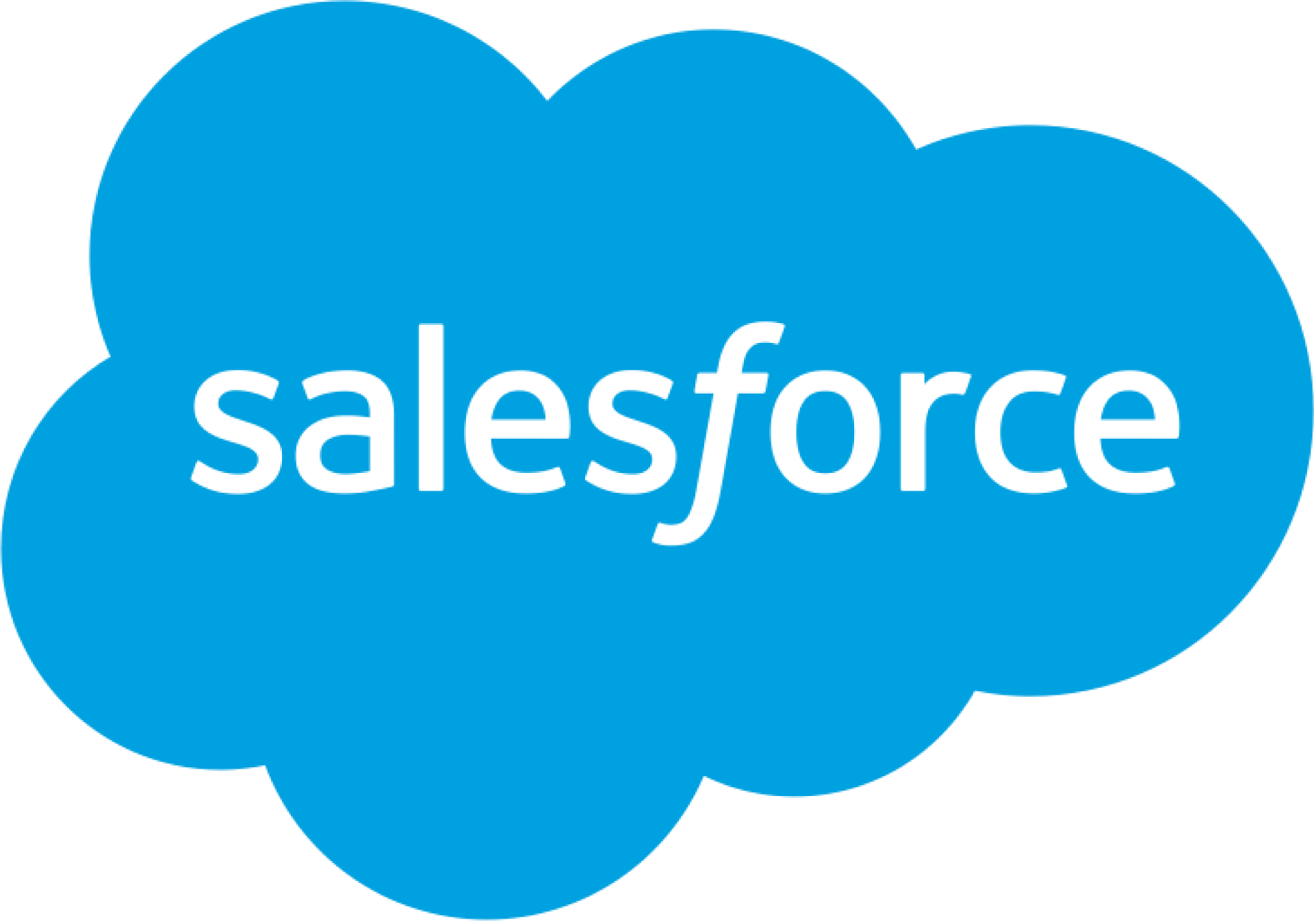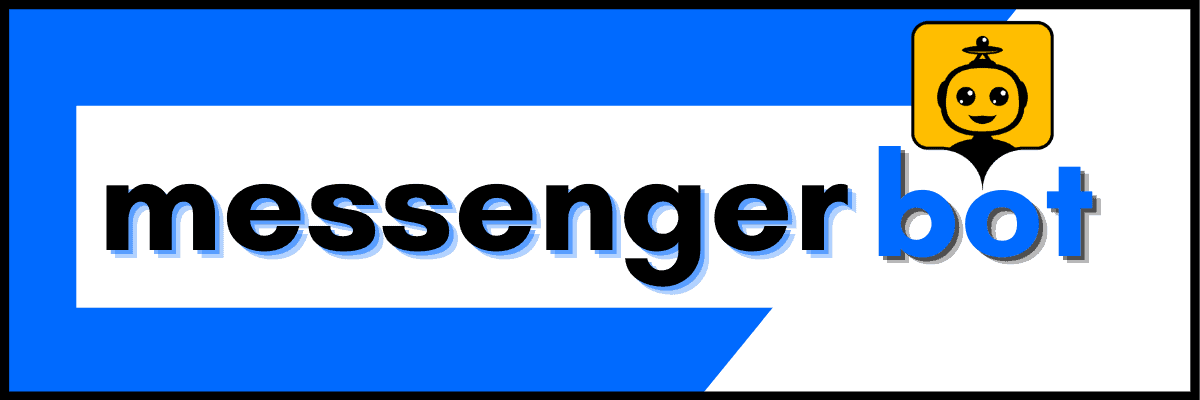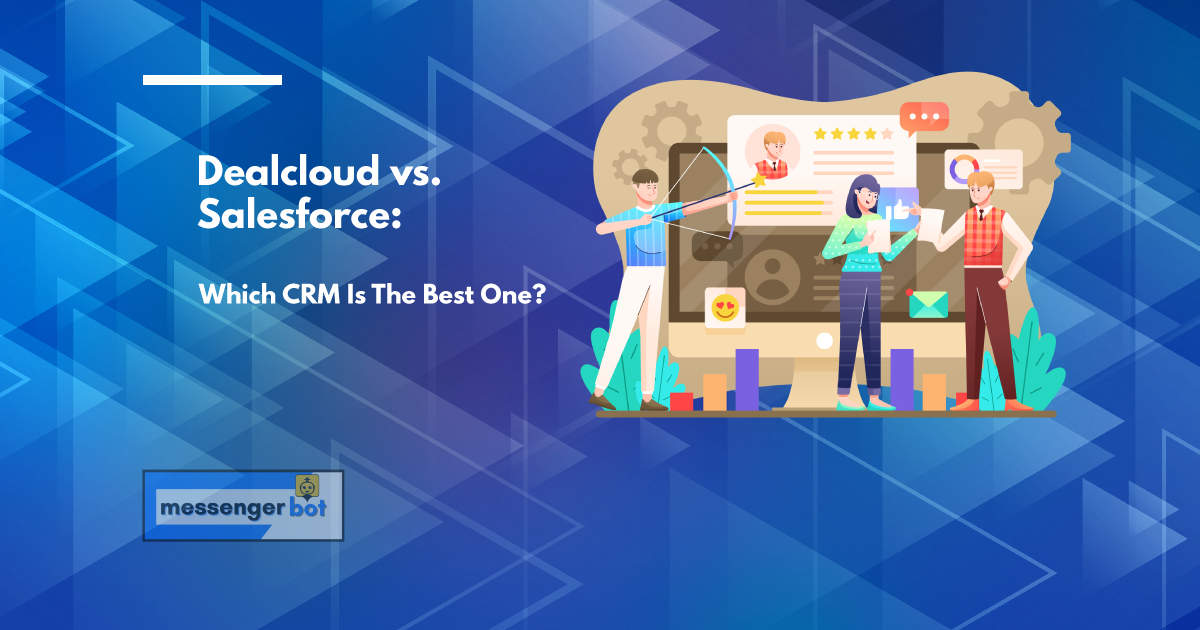Dealcloud vs Salesforce: Choosing the right CRM is not easy; there are many options to choose from. If you want to make your decision easier, then this blog post will help you decide which one is best for you. We’ll look at two popular CRMs: DealCloud and Salesforce, and compare them in terms of features, cost, customer service, etc.
What is CRM?

CRM is a customer relationship management system, which helps businesses manage and track their interactions with current and potential customers. It can provide sales teams with important insights into customer behavior, so they can better target and serve their needs.
CRM software can also automate certain sales tasks, like lead capture and follow-up, making it easier for sales reps to keep track of their progress.
What is DealCloud?

Dealcloud is a tool that helps businesses to automate their sales pipeline.
Dealcloud also allows them to manage contacts, leads, opportunities in real-time. It provides analytics about these numbers as well. Therefore, they can measure the progress of each deal with ease. Even if the business is not using Dealcloud, it can still export its data into a CSV file and import it into Dealcloud.
DealCloud also integrates with other applications that the business might be using, such as Salesforce, Google Apps, Zendesk, and more. This makes it a very powerful tool for businesses of all sizes.
What is Salesforce?

Salesforce is a customer relationship management (CRM) software that helps businesses manage and track sales, customers, and contacts. Salesforce can also automate tasks such as sending email reminders to clients or following up with potential leads.
Salesforce is one of the most popular CRMs on the market, and it has a wide variety of features that can accommodate all types of businesses.
One way that Salesforce can be beneficial to a business is through its ability to manage its sales pipeline. For instance, if there are ten leads in the pipeline and seven close deals, then it allows you to see at a glance how your pipeline is doing.
One of the many benefits of using Salesforce for your company is that it provides real-time information to managers, co-workers, and other employees within their organization. The user doesn’t have to open separate windows or go through complex steps to get their work done. Salesforce is also customizable, so you can tailor it to meet the needs of your specific business.
DealCloud vs Salesforce Features Comparison
There are many different CRM systems on the market, each with its own set of features. So how do you decide which one is right for your business? In this article, we compare two of the most popular CRM systems: Dealcloud and Salesforce.
Lead Management

Lead management is the process of converting a prospect into an actual lead. It involves nurturing interested prospects through various marketing activities until they are ready to buy from your company.
Why is lead management important in marketing?
Lead generation and conversion allow marketers to stay relevant in their industry by generating new leads that fit customer persona criteria while building loyal customers for life with brand advocates.
Dealcloud’s lead management capabilities include importing and exporting leads, managing lead lists, tracking leads through the sales funnel, and creating reports on lead activity.
Dealcloud is a powerful CRM that can help you manage leads and capture them in your marketing automation tool.
The lead management of Dealcloud is an easy-to-use interface that allows you to import lists, track leads in the sales funnel, and create reports.
The lead management of Salesforce allows you to manage, update and track all your leads while making sure they are being nurtured at every stage of the funnel.
Salesforce’s lead management capabilities include importing, exporting, and sharing information with other users on a shared list. It also allows marketers to identify contact opportunities by leveraging Sales Cloud for access to accurate company data from Marketing Cloud Public Sector.
The lead management of Salesforce is extremely powerful and can help you manage leads more effectively.
In terms of lead management, Dealcloud and Salesforce are both powerful CRMs that can help you manage your leads more effectively. However, Dealcloud’s lead management capabilities seem to be a bit easier to use and offer more features for managing leads. So, if you’re looking for an easy-to-use interface with lots of features, then Dealcloud would be the best CRM for you.
Reporting and Analytics

Reporting and analytic tools help you monitor the performance of your marketing campaigns and keep track of how many leads were generated. They measure which channels are most effective, what are the cost per lead/acquisition rate, and other important metrics that will help drive future decisions for better results.
Reporting and analytics are important to every business and should be a part of your marketing plan.
The reporting and analytics of Dealcloud is a very powerful tool that will measure the performance of each campaign and provide insights on what can be improved.
Dealcloud has better reporting and analytic tools than Salesforce which makes it easier to understand results from multiple channels, determine where to focus your marketing efforts for more ROI, get detailed insights into customer behavior and track your campaign’s performance.
Dealcloud is the best CRM for businesses that want to measure and improve their marketing campaigns performance.
The reporting and analytics of Salesforce is a powerful tool that helps you understand your customer’s buying behavior. It also measures the performance of each campaign and provides insights on what can be improved.
However, it is not as detailed as Dealcloud when it comes to understanding the results from multiple channels or tracking your campaign’s performance.
Salesforce is best for businesses that want to measure and improve their customer’s buying behavior.
Salesforce and Dealcloud are both great CRMs, but if you want to measure and improve your marketing campaign’s performance, then Dealcloud is the best choice.
In terms of reporting and analytics, Dealcloud is the clear winner for marketing campaigns. It has more detailed insights, better reporting features and will help you improve your ROI in the future.
Salesforce is good for businesses who are interested in understanding their customers’ buying behavior but do not have a strong need to measure campaign performance or understand results from multiple channels.
Integrations

Integration is the process of linking two or more separate software applications together so that they can share data and work cooperatively. In marketing, integration is important because it allows you to connect your sales and marketing platforms, which will help you track leads more effectively and generate better ROI on your marketing campaigns.
Integrations are useful because they take information from two different platforms and allow you to use them together.
The integrations of Dealcloud are Marketo, Eloqua, and Hubspot
The integrations of Dealcloud are very important for marketing because it allows you to link your CRM with the other platforms that will help you track leads more effectively. This is an efficient way to generate better ROI on your marketing campaigns. The integration also helps you centralize all of your data in one place, which makes it easier to analyze and make decisions.
Dealcloud’s integration with Marketo allows you to easily sync your lead data and prospects. The integration also has a guided workflow that tracks how many times the contacts in both platforms are updated, which shows who’s working on what deals.
Dealcloud integrates with Eloqua through Lead Management API (application programming interface). With the help of this feature, marketing and sales teams can pre-fill lead information in the Eloqua application.
Dealcloud also integrates with Hubspot, which allows you to sync your contacts and automatically add new leads from Hubspot into Dealcloud. The integration helps both platforms work together so that they share data and update each other when there are changes made on either platform.
Salesforce integrates with many different applications, including:
-Marketo
-Eloqua
-Hubspot
-Pardot
-Zoho CRM
Salesforce’s integrations are very important for marketing because it allows you to link your CRM with the other platforms that will help you track leads more effectively. This is an efficient way to generate better ROI on your marketing campaigns. The integration also helps you centralize all of your data in one place, which makes it easier to analyze and make decisions.
Salesforce’s integrations with Marketo, Eloqua, Hubspot, Pardot, and Zoho CRM are very useful for marketing because they allow you to sync your leads and automatically add new leads from Hubspot into Salesforce. The integration helps both platforms work together so that they share data and update each other when there are changes made on either platform.
In terms of integrations, Dealcloud is better because it has more integrations with the other marketing platforms. It also has a guided workflow that shows who’s working on what deals, which helps you track leads more effectively and generate better ROI for your marketing campaigns.
In terms of integrations, Salesforce is not as good as Dealcloud because it only integrates with Marketo and Eloqua. It does not have a guided workflow that shows who is working on what deals, which makes it difficult to track leads effectively or generate better ROI for your marketing campaigns.
Contact Management

Contact management is the process of organizing and managing contacts with potential or current customers. It’s important for marketing because it allows you to track interactions with leads and customers, which can help you measure the success of your marketing campaigns and strategies.
Contact management allows you to store the details of your contacts, including their contact information (such as name and email address) and other pertinent data. You can also organize your contacts into lists based on these details, such as “customers” or “prospects”.
This allows for better communication with your customers by streamlining all interactions under one system.
The contact management of Dealcloud is extensive and allows you to track all interactions with leads and customers. You can store the details of your contacts, including their contact information (such as name and email address) and other pertinent data. You can also organize your contacts into lists based on these details, such as “customers” or “prospects”.
This allows for better communication with your customers by streamlining all interactions under one system. Dealcloud also allows you to track the success of your marketing campaigns and strategies, so you can improve upon what’s working and abandon what isn’t.
Dealcloud integrates with a variety of other applications, such as Salesforce and HubSpot, so you can get the most out of your contact management.
The contact management of Salesforce is also extensive and allows you to track all interactions with leads and customers. You can store the details of your contacts, including their contact information (such as name and email address) and other pertinent data. You can also organize your contacts into lists based on these details, such as “customers” or “prospects”.
This allows for better communication with your customers by streamlining all interactions under one system. Salesforce also integrates with a variety of other applications, such as Dealcloud and HubSpot, so you can get the most out of your contact management.
Salesforce is also known for its powerful analytics, which can help you measure the success of your marketing campaigns and strategies.
In terms of contact management, Dealcloud and Salesforce are both top contenders. They both have extensive features that allow you to track all interactions with leads and customers, as well as the success of your marketing campaigns and strategies.
However, Dealcloud’s integration with other applications gives it an edge over Salesforce. And since Dealcloud is a cloud-based application, it’s always up-to-date and accessible from anywhere. So if you’re looking for a powerful CRM with excellent contact management features, Dealcloud is the best option.
If you’re still not sure which CRM to choose, check out our comparison of Dealcloud and Salesforce.
Workflow Automation

Workflow automation is the process of automating a series of tasks or activities that are repetitive. Workflow automation is important in marketing because it allows you to streamline your processes, saving you time and energy. It also helps to ensure that all aspects of your marketing campaign are cohesive and well-coordinated.
Workflow automation can be used for a variety of tasks, including email marketing, social media campaigns, and lead management. It allows you to create templates for your campaigns that can be customized according to the specific needs of each campaign. This ensures that all aspects of your marketing are tailored to meet the needs of your audience.
In addition, workflow automation helps to ensure that all tasks are completed on time and that deadlines are met. It also allows you to track the results of your campaigns, so you can see how well they are performing and make necessary adjustments. By automating your marketing processes, you can save time and energy while ensuring that your campaigns are effective and efficient.
The workflow automation of Dealcloud makes it an ideal choice for any company that needs to automate its marketing processes. Dealcloud offers a wide range of features that can be used for workflow automation, including email marketing, social media campaigns, and lead management. It also offers a wide range of templates that can be customized according to the specific needs of each campaign.
In addition, Dealcloud offers a variety of tracking tools that allow you to see how well your campaigns are performing and make necessary changes. By automating your marketing processes, you can save time and energy while ensuring that your campaigns are effective and efficient.
Dealcloud’s workflow automation makes it the perfect choice for any company that needs to automate its marketing processes.
Salesforce, on the other hand, is a comprehensive CRM that can be used for a variety of purposes, including marketing. While it does offer some features for workflow automation, they are not as comprehensive as those offered by Dealcloud. In addition, Salesforce does not offer the same level of customization that is available with Dealcloud.
Salesforce is an excellent choice for companies that need a comprehensive CRM for a variety of purposes, including marketing.
In terms of workflow automation, Dealcloud is the clear winner. It offers a wide range of features that can be used for workflow automation, including email marketing, social media campaigns, and lead management. In addition to this, Dealcloud’s templates are customizable according to each specific campaign need; it also offers a variety of tracking tools with analytics; finally, Dealcloud allows users to easily share campaigns across multiple email platforms, including Gmail and Outlook.
Salesforce’s workflow automation may be good for some companies but it still lags behind Dealcloud in several key areas. It does not offer as many features that can be used for workflow automation; its templates are not customizable according to campaign needs; it also offers a variety of tracking tools with analytics; finally, Salesforce is not compatible with Gmail or Outlook.
Tracking
Tracking is the process of monitoring the progress and results of a marketing campaign. By tracking data, businesses can measure the success of their campaigns and make changes as needed. This allows them to optimize their efforts and achieve better results over time.
Various types of data can be tracked in marketing campaigns. Some common examples include website traffic, leads, and sales.
Tracking is important for a variety of reasons. First, it can help improve future campaigns by allowing you to identify what efforts are most effective and which ones aren’t. Tracking data also allows businesses to see where their customers come from so they know how best to spend marketing dollars in the future.
Tracking is an essential part of any successful marketing campaign, and the right CRM can make it easier than ever to collect and analyze data.
The tracking of Dealcloud is a lot more advanced compared with most CRMs. This is because it also includes business data, such as accounts and contacts that can be automatically updated or synchronized. Dealcloud has built-in tools that allow you to track social media interactions in real-time, including Facebook likes and Twitter followers.
The DealCloud tracking capabilities are second to none when it comes to CRMs. It’s easy to see how your marketing campaigns are performing and make changes as needed. This ensures that you’re getting the most out of your investment in Dealcloud.
Salesforce also offers powerful tracking capabilities, but they aren’t quite as advanced as those offered by Dealcloud. Salesforce allows you to track website visits, leads, and sales, but it doesn’t include business data as Dealcloud does.
Salesforce is a great choice for businesses that want to track their marketing campaigns in more detail. It has powerful tools that allow you to see how individual campaigns are performing and make changes as needed. However, it’s not as comprehensive as Dealcloud when it comes to tracking business data.
Salesforce’s tracking capabilities are still impressive, and they should be more than adequate for most businesses. It’s just not as advanced as Dealcloud’s tracking capabilities.
In terms of tracking, Dealcloud is the clear winner. It offers more comprehensive tracking capabilities than Salesforce, making it easier to measure the success of your marketing campaigns. If you’re looking for a CRM that makes it easy to track your marketing efforts, Dealcloud is the best choice.
Pipeline Management
Pipeline management is a process of systematically managing the potential sales opportunities that your company encounters. By having a well-organized pipeline, you can improve your chances of converting more leads into paying customers.
Pipeline management is an important part of any effective marketing strategy. It allows you to track your progress towards meeting your sales goals and helps you make better decisions about where to focus your efforts.
The pipeline management of Dealcloud is especially robust. It offers a variety of features that allow you to track your progress, including a comprehensive dashboard that provides an overview of all active opportunities, customizable pipeline stages, and statuses to reflect your sales process, email notifications when deals are updated or moved to a new stage, automated reports that show how your pipeline has changed over time, and custom reports that allow you to slice-and-dice your data.
Dealcloud also offers a great mobile app that makes it easy to stay on top of your deals while you’re on the go.
Dealcloud’s pipeline management is a powerful tool that can help you increase your sales efficiency and close more deals.
Salesforce’s pipeline management is also very comprehensive. It includes features like opportunity tracking, forecasting, and collaboration tools that allow you to work with your team members to close more deals.
Salesforce also offers a mobile app that gives you access to your data while you’re on the go.
The pipeline management of Salesforce is a powerful tool that can help you increase your sales efficiency and close more deals.
In terms of pipeline management, Dealcloud and Salesforce are both great options. However, Dealcloud offers a more robust lineup of features that can help you close deals faster than Salesforce.
Both companies offer mobile apps for increased accessibility.
In terms of pipeline management, it’s hard to go wrong with either company – but if you’re looking for the most comprehensive set of features, Dealcloud is the winner.
Forecasting
Forecasting is important in marketing because it enables businesses to estimate future sales, revenue, and profits. This information is used to help plan for the future and make decisions about product lines, pricing, staffing levels, and other strategic issues. Forecasting can also be used to monitor actual performance against goals, identify problem areas and take corrective action.
Forecasting is done through the use of models, which are mathematical or statistical formulas that take past data into account and then generate estimates for future outcomes. The accuracy of a forecast depends on the quality of the data used in the model, as well as how well the model reflects current market conditions.
There are many different types of forecasting models, including time-series, trend-line, causal models, and regression analysis. Each has its own strengths and weaknesses, so businesses should use a variety of models to get the most accurate predictions.
The forecasting of Dealcloud is based on an algorithm that collects and organizes data from multiple sources such as Google Analytics, Facebook Ads Manager, Twitter Ads, etc. This information has been gathered over the years by our team of experts to be used in predictive analytics for salespeople and marketers so they can get a better idea about their campaign’s future performance.
Dealcloud’s algorithm allows organizations to forecast their leads’ potential, which helps them get a better idea of the ROI from marketing campaigns and strategies. This creates an opportunity for businesses to create effective marketing plans that have been designed around facts rather than assumptions.
The forecasting of Salesforce is a complex process that requires the use of specialized software. This is because it involves having to integrate data from multiple sources and then analyze all this information to come up with accurate results.
Salesforce has been able to accomplish this through their Customer Success Platform, which enables businesses to manage customer relationships at scale by using real-time analytics and personalized engagement. The platform is designed to provide a unified view of each customer, so all the information about them can be easily accessed from one place. This allows companies to have better insights into their customers’ needs and wants, which helps Salesforce offer smarter recommendations for improving conversions rates and revenue growth.
In terms of forecasting, Dealcloud and Salesforce are both very reliable tools. However, Dealcloud’s algorithm-based forecasting is slightly more accurate because it takes into account a wider range of data sources. Additionally, Dealcloud offers lead potential forecasting which measures how likely it is for leads to convert into paying customers. This information can prove to be invaluable for BDRs and marketers who are responsible for generating new revenue, so they can develop more effective strategies that have been designed around facts rather than assumptions.
Salesforce’s forecasting is a much more complex process that requires the use of specialized software to be able to integrate data from multiple sources and then analyze all this information. This makes it difficult for businesses that are not technologically savvy to be able to use this tool. However, Salesforce does offer a Customer Success Platform that provides a unified view of each customer so all the information about them can be easily accessed from one place. This gives companies insights into their customers’ needs and wants, which helps Salesforce make smarter recommendations for improving conversions rates and revenue growth.
In conclusion, Dealcloud and Salesforce are both very effective tools for forecasting but Dealcloud’s algorithm-based forecasting is slightly more accurate because it takes into account a wider range of data sources. Additionally, Dealcloud offers lead potential forecasting which measures how likely it is for leads to convert into paying customers.
Which kind of CRM will best allow your firm to manage your data?
Salesforce is a great choice for many businesses. The platform’s strength lies in its versatility, allowing you to build an easy-to-use CRM that adapts to your company’s needs and processes. Salesforce has been around since the beginning of cloud computing, so its system will grow with you as long as you need it to. However, Salesforce is a bit expensive and not quite as flexible for companies that have unique needs.
Dealcloud has been rising in popularity due to its affordability and usability by all kinds of businesses. Dealcloud offers an easy-to-use platform that allows you to configure your CRM according to the specific requirements of each department or user group. Dealcloud is known for having great support.
How are these alternatives similar to DealCloud?
DealCloud vs Navatar
Navatar and DealCloud offer both marketing and sales automation features. However, Navatar also offers a CRM for small businesses in addition to its high-end platform. The idea is that the smaller companies don’t need all of the bells and whistles found on larger platforms like Salesforce or Marketo; they just need basic functionality such as lead capture, nurturing, and management. Since the CRM is built on top of a marketing platform, you can easily create automated workflows that will communicate with prospects or customers at appropriate touchpoints in their journey from awareness to purchase. Unlike DealCloud’s “upsell” feature (where companies pay more for additional features), Navatar makes all of its functionality available to its users for one low price.
The main drawback is that Navatar only offers standard lead nurturing, without real-time engagement or automated workflows (something it refers to as “drip” marketing). This means you can’t target prospects based on their behaviors and needs — which makes the platform less powerful than something like DealCloud.
DealCloud vs DealPath
Both Dealcloud and DealPath offer CRM software that helps businesses manage their sales pipelines and customer relationships. However, there are some key differences between the two platforms.
DealCloud is a cloud-based CRM that can be accessed from any device with an internet connection. It offers features such as lead management, opportunity tracking, and customer relationship management (CRM). Dealcloud also integrates with other applications such as QuickBooks and Google Apps.
DealPath is a CRM that is compatible with both iOS and Android devices. The platform offers features such as email marketing, opportunity tracking, lead management, sales forecasting, time-tracking software (for teams), customer support tools, and integration with other applications like Google Apps.
Which CRM should you choose?
One CRM that is great for small business owners who want to start with a product they can afford, but still get all of the benefits including some advanced stuff like forecasting and budgeting is DealCloud. This CRM costs around $80/month which is perfect if you are on a tight budget or just having trouble justifying spending thousands of dollars on a CRM. Salesforce is great for businesses that have outgrown DealCloud and need more features or have more complex sales processes. Salesforce can cost anywhere from $25/month to $300/month, depending on the features you need. So, which CRM should you choose? If you are just starting, or are on a tight budget, go with DealCloud. If you have outgrown DealCloud or need more features, go with Salesforce.




